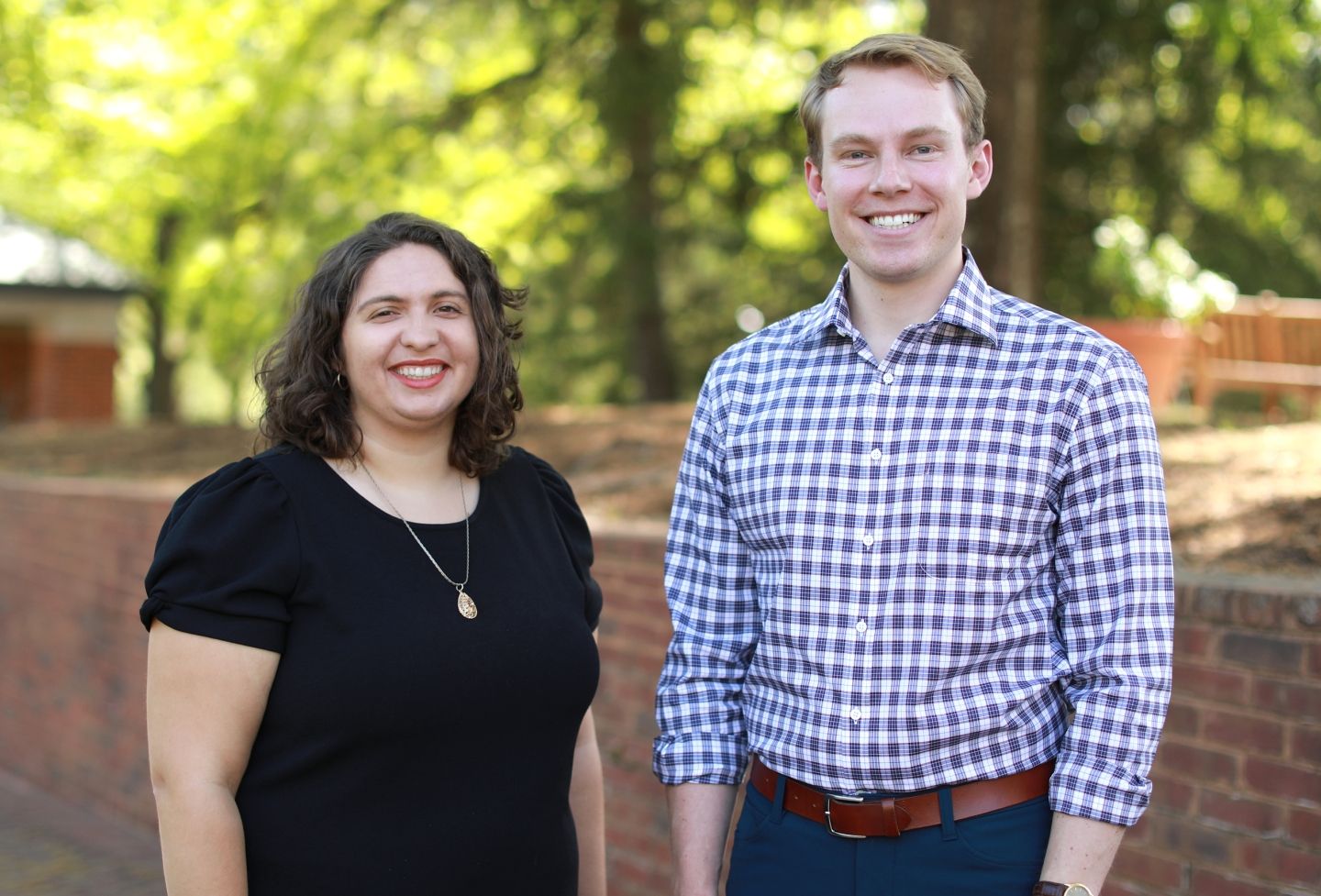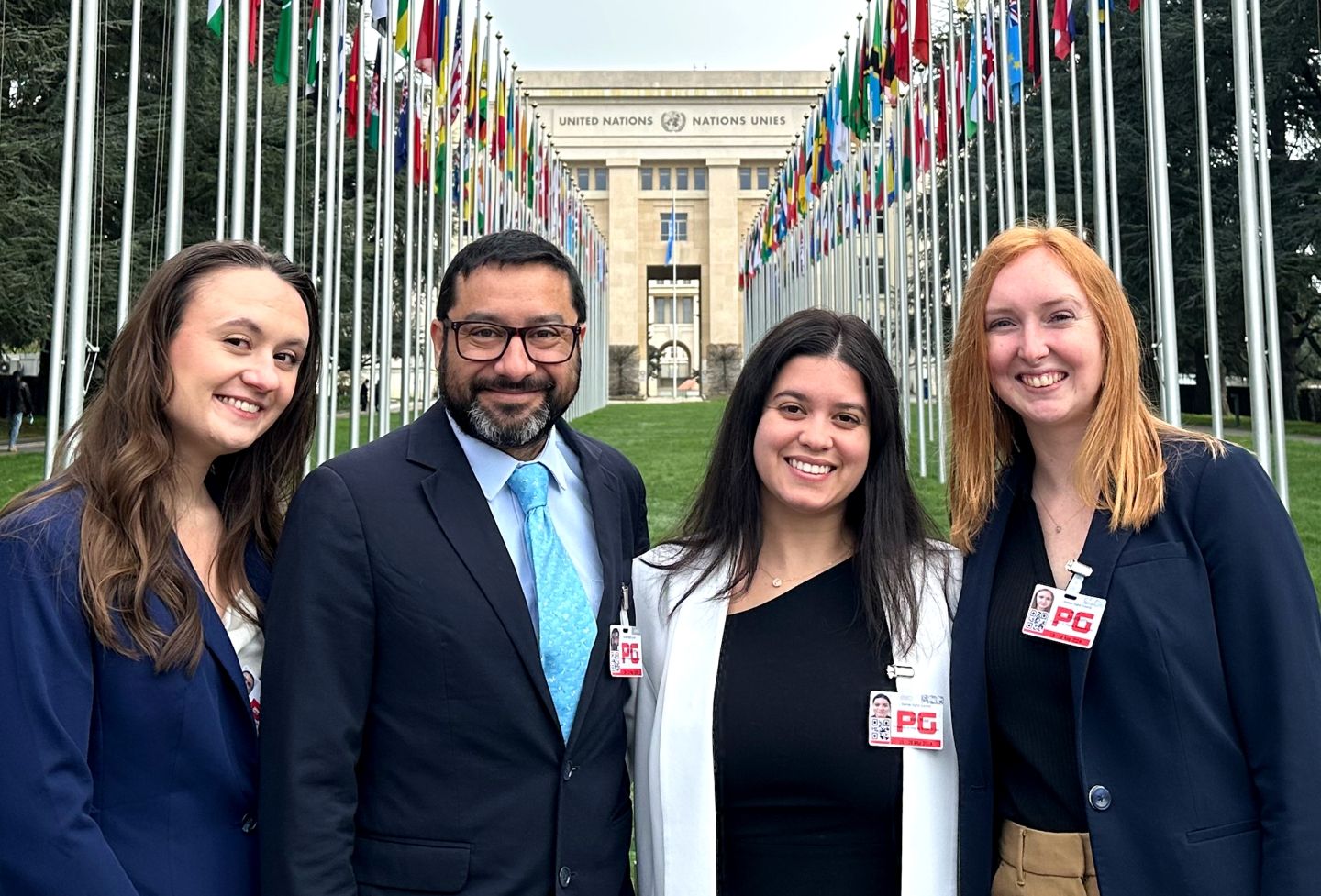Members of the University of Virginia Black Law Students Association recently journeyed to Sierra Leone as part of a public service trip to teach paralegals contracts, torts and criminal law, and also to study how foreign companies mine the nation's abundant natural resources.
The students Ogechi Achuko '13, Malinda Bridges '15, Liah Burnley '15, Andrea Canfield '14, Tawnie Gulizia '15 and Ashley Williams '15 spent eight days during spring break in the West African country, which is still recovering from a civil war that lasted from 1991 to 2002.
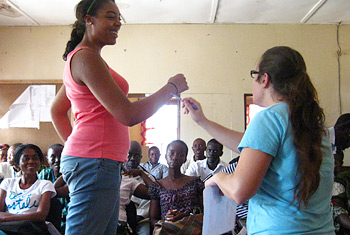
The team volunteered through Timap for Justice, a nonprofit focused on providing free justice services in Sierra Leone, which faces a shortage of lawyers. In advance of their trip, the students researched the nation's laws and created a legal guidebook for the paralegals they trained.
"The power of the legal system, the power of knowing your rights — it just changes every part of a person's life if they know what they can do if their husband were to beat them, or if it's not right for someone to take their land," Canfield said. "Knowing the process itself is just so powerful, and I think that we take it for granted here."
"They have their own customary law, but we focused more on the formal legal system," Bridges said, which is a common law system, similar to the United States.
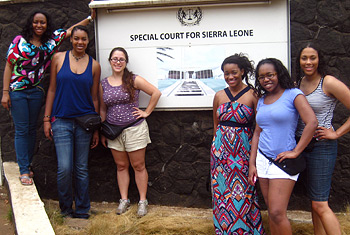
Timap paralegals serve as the sole legal aid community in Sierra Leone because of a shortage of formally trained attorneys, the students said. The country's only law school graduates roughly 40 lawyers annually, most of whom go into private law.
A large majority of the paralegals lacked formal education in law, but ably learned legal principles that touch on fundamental ideals, Achuko said. The student teachers gained much from the experience as well, she added.
"All of us grew and matured as students — the fact they we [had] to take torts and crunch it down into an hour presentation really gave us an opportunity to work on our public speaking [and] go over what we learned our 1L year," she said.
As part of the three-hour training sessions, the students prepared examples and hypothetical scenarios to transfer theory into practice. In sessions in Freetown and in rural areas, the students taught over 50 paralegals in four offices.
"We tailored our lessons to the issues that are probably the most pertinent to them," Burnley said. "They go out in the communities and find the legal disputes, or the legal disputes will come to them, and they will try to do mediation or arbitration and find which cases are worthy of litigation."
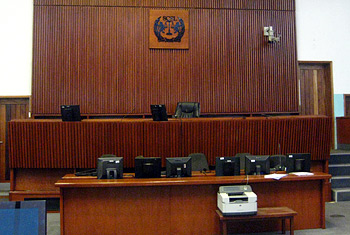
Though many of the Sierra Leoneans they encountered responded positively when the students said they were volunteering through Timap, at one roadblock for a toll road a police officer "kind of laughed and said, 'There's no justice here,' [but added] it's a good thing that people like us are doing what we are doing," Burnley recounted.
On their day off, the students also received a personal tour of the Special Court for Sierra Leone, which was set up by the United Nations and Sierra Leone to prosecute war crimes.
During the civil war, which began with an attempted coup, more than 50,000 citizens died. The students said the director of the special court said that today, no one knows who fought on which side.
"The director of the special court told us, 'You don't know who was in the rebel forces or who was on the Sierra Leone side, everyone is the same, you can't tell.' Everyone is back to themselves, he said, and people are just looking for direction," Burnley said.
As part of the service project, the students also plan to report back to Timap on how Sierra Leoneans can better negotiate rights to their natural resources.
Rich in diamonds, titanium, bauxite and gold, the country has attracted international corporations from nations ranging from China to Russia, all seeking to gain rights to mine the nation's resources.
"They'll get permission from chiefs of remote villages or towns to mine," Canfield said. "They'll ruin crops or ruin land, and not [refill] the land or adequately compensate individuals who own the land."
The co-founder of Timap, Simeon Koroma, started the nonprofit after working as a corporate lawyer for a mining company. "He said he was on the right side of the law, but the wrong side of justice," Burnley said.
Achuko said the students were also looking at the issue from the broader perspective of corporate responsibility.
The foreign mining of natural resources "is, in a way, stunting African development," she said.
The students plan to discuss the topic with UVA law professor Deena Hurwitz, director of the school's Human Rights Program, and lecturer Christopher Ryan, a partner in the International Arbitration Group at Shearman & Sterling. After that, they will send Timap a position piece as a starting point to begin lobbying for change.
Though the trip was a learning experience on many fronts, the students also had time to explore the capital, including the beach and market, and to become friends with locals such as their taxi driver, Joseph.
"It was definitely a humbling experience to see the two different cultures and the way that they live compared to the way that we live," Burnley said. "Everyone was very welcoming and open to us."
Other outings included a visit with a village's police chief, a courthouse visit and a trip to a detention center.
"To go into the courthouse, females had to cover their hair and cover their legs," Canfield said. "We wore scarves over our hair and either dresses or pants that didn't go above our ankles."
When the students had the opportunity to attend a bail hearing, the differences in Sierra Leone's legal system stood out — the accused had no public defender and the arresting police officer was also the prosecutor.
"People complain a lot about our legal system, and although it does have problems, I think I appreciate it more," Bridges said. "It may not be a perfect system, but you still have a chance to have a defense, where in Sierra Leone, people would just be found guilty, there's no one to represent them."
Achuko praised Timap for recognizing how to best help the citizens of Sierra Leone when resources are limited.
"There's no one definition of justice. Timap recognized the ideal that justice has to fit within the framework of the country," Achuko said. "One of their biggest tools for resolution is mediation. Not only do they mediate, but they also go out and teach other community members mediation skills, so it's like a chain reaction of justice."
Founded in 1819, the University of Virginia School of Law is the second-oldest continuously operating law school in the nation. Consistently ranked among the top law schools, Virginia is a world-renowned training ground for distinguished lawyers and public servants, instilling in them a commitment to leadership, integrity and community service.

